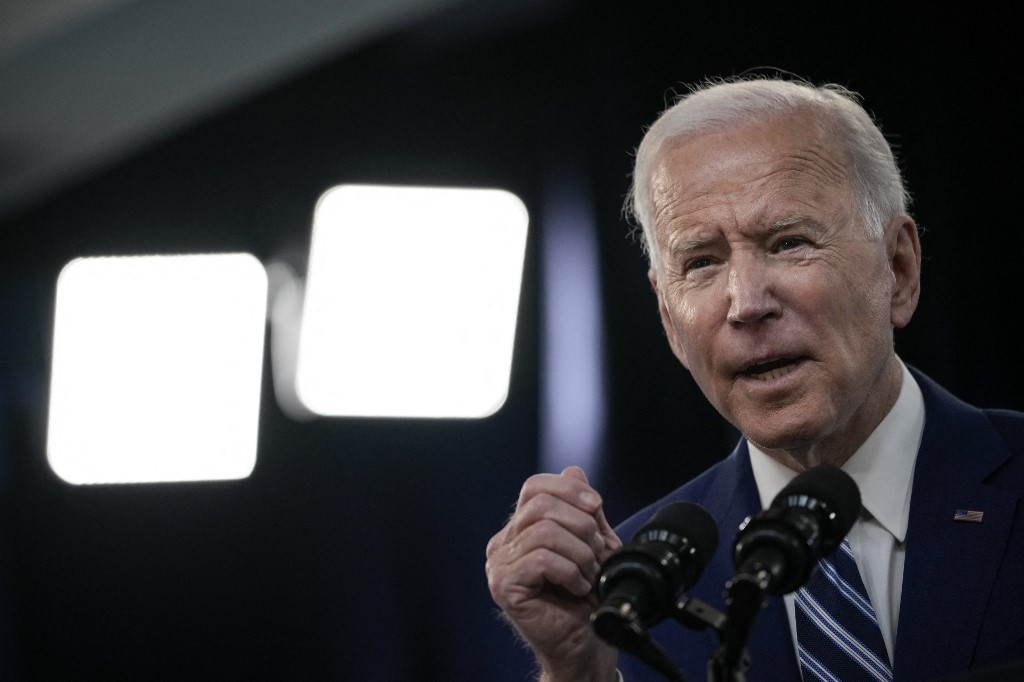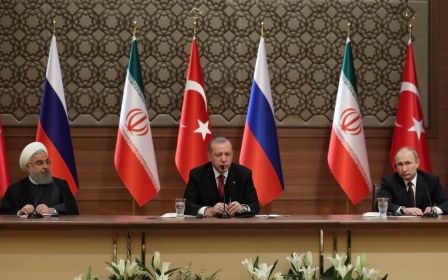Syria war: Who are the real anti-imperialists?

In the history of post-World War Two US imperialism, there have been various cases of aggression against countries and regimes that many anti-imperialist, socialist leftists around the world have considered reactionary, or at least not worthy of their support.
In some cases, there was a consensus that while the regime in question was not to be defended, the imperialist aggression against it was not intended to save people from its dictatorial predations, but rather to secure imperialist hegemony and economic profits that would continue to oppress people. Even in cases when anti-imperialists thought the targeted regime deserved defence, their efforts mostly focused on opposing intervention.
Yet, opponents of US aggression in Southeast Asia in the 1960s and 1970s were often branded by American “patriots” as Soviet agents, apologists for the Viet Minh, communists, pinkos, traitors, etc.
The motive for invading the target country was imperialist hegemony and pillage, and not - as usually claimed - bringing democracy
Perhaps the most notorious recent cases were the US-led invasions of the Arabian Peninsula in 1991 and Iraq in 2003. None of the anti-imperialist leftist, let alone liberal, opponents of the invasions had any love for Saddam Hussein’s tyrannical regime, but they all understood that the invasions were concerned with imperial interests and had nothing to do with ending dictatorship - especially as Saddam had been a western ally since he heeded the call to invade revolutionary Iran in 1980.
While many across the Third World and elsewhere, unacquainted with the nature of Saddam’s regime and taken in by his anti-imperialist propaganda, championed him, most anti-imperialist socialists around the world knew better. Even when journalists uncovered the lie by members of the Kuwaiti ruling family that Saddam’s troops killed babies in incubators in a Kuwaiti hospital, the exposure of the propaganda was not in defence of Saddam, but an attack on pro-intervention propaganda.
New MEE newsletter: Jerusalem Dispatch
Sign up to get the latest insights and analysis on Israel-Palestine, alongside Turkey Unpacked and other MEE newsletters
From Angola to Libya
There have been other murky situations in places such as Angola after its revolutionary independent socialist regime liberated the country in 1975. UNITA, a US- and South Africa-supported local “revolutionary” army, was subcontracted to bring down the regime, with claims of popular support and authentic representation of the “oppressed” Angolan people.
Anti-imperialist socialists went to pains to explain their opposition to this imperialist aggression. They insisted that they knew the Angolan oil industry was dominated by US corporations, which had lobbied the US government against supporting the invasion by South Africa and its proxy because it was harmful to their own investment.
Anti-imperialists were also aware of the irony that it was Cuban military forces defending the Angolan regime and US oil interests against US and South African aggression. But they believed the situation should not deter anyone from opposing US and South African aggression.
Others, on the right, insisted that UNITA was a homegrown Angolan movement that could only find allies in apartheid South Africa and US imperialism, but that this should not discredit the authenticity of the movement and its struggle for democracy. Few of the opponents of US and South African aggression found such logic persuasive, even if most did not necessarily defend any actions of the Angolan government.
In Libya, many anti-imperialists warned against the 2011 Nato intervention as motivated by European and US imperial pillage, rather than ending dictatorship in the country. They were accused of being apologists for the country’s former leader, Muammar Gaddafi. The utter destruction and pillage of the country that the US and Europe have since carried out should put matters to rest, though many proponents of that intervention unsurprisingly continue to support imperialist-sponsored regime-change efforts in Syria.
'Assad apologists'
The Assad regime in Syria, despised by Arab and non-Arab leftists around the world, is only defended by regime loyalists and a few Islamophobic anti-imperialists who believe that if the regime fell, Islamic State-style Islamists would take over - which is not an unlikely scenario. Yet, these are but a small segment of those who oppose US intervention in the country to depose the regime, on the basis that the motive for invading the target country was imperialist hegemony and pillage, and not - as usually claimed - bringing democracy.
Yet, the wide-ranging current of explicit and implicit supporters of US and western intervention in Syria not only insist that such an intervention would be pro-democratic and anti-imperialist, but that all those who oppose it must be Assad apologists hiding behind anti-imperialism.
In a recent letter published in a Syrian opposition newspaper attacking opponents of US aggression in Syria, the authors speak of “the emergence of pro-Assad allegiances in the name of ‘anti-imperialism’ among some who otherwise generally identify as progressive or ‘left’, and the consequent spread of manipulative disinformation that routinely deflects attention away from the well-documented abuses of [Syrian President Bashar al-Assad] and his allies. Portraying themselves as ‘opponents’ of imperialism, these individuals routinely exhibit a highly selective attention to matters of ‘intervention’ and human rights violations; one which often aligns with the governments of Russia and China.
“Those who disagree with their highly-policed views are frequently (and falsely) branded as ‘regime change enthusiasts’ or dupes of Western political interests … What unites them is a refusal to contend with the crimes of the Assad regime, or even to acknowledge that a brutally-repressed popular uprising against Assad took place at all.”
Military aggression
These opponents of imperialist intervention, we are told, have “mushroomed” in recent years. The letter insists that “America is not central to what has happened in Syria, despite what these people claim. The idea that it somehow is, all evidence to the contrary notwithstanding, is a by-product of a provincial political culture which insists on … the centrality of US power globally”.
In fact, the letter’s authors reveal that the real culprit in what transpired in Syria since 2011 was, as opposed to US or western imperialism, “the imperialist interventionism of Russia, Iran, and China”. That Turkey, France, the UK, the US, Saudi Arabia, Qatar, Israel and the EU were among a huge western coalition that invested billions of dollars and armed and trained militias to bring down the Syrian regime, seems to be not based on fact, but is “a by-product of a provincial political culture”.
For Chomsky to sign a letter accusing opponents of imperialism of being apologists for a dictator is indeed ironic
And when did China intervene in Syria? In an increasingly common - and comical - move, the letter accuses anyone who insists on discussing the glaring facts about massive imperial intervention of denying the “agency” of the Syrian people.
The letter’s authors, whose signatories include many supporters of US or NATO imperialist intervention in Libya or Syria, condemn these unnamed opponents of US intervention in Syria, including investigative journalists who have exposed major deceptions by the mainstream western media and intelligence agencies, insisting that they are apologists for Assad.
Turkey, Israel and the US, whose military aggression and occupation of Syrian lands in the north, east and south continues to this day, are nowhere to be found in this narrative of a mighty cabal of international anti-imperialist apologists who have allegedly “erased” Assad’s Syrian victims.
Reversing the equation
Proponents of western military intervention in Syria and other countries proliferate across western media and social media, where some harass and intimidate opponents of intervention regularly on Twitter, calling them the basest of names. Moreover, some of the most prominent organisations that push for intervention are directly funded by anti-democracy western and Middle Eastern regimes and weapons companies. Yet, the letter-writers reverse this equation, endowing opponents of US imperialist intervention with the power of standing in the way of liberating the Syrian people.
The letter-writers must be elated that Noam Chomsky is among the signatories. For Chomsky to sign a letter accusing opponents of imperialism of being apologists for a dictator is indeed ironic, especially as Chomsky was a major victim of such demagoguery himself in the 1970s. At the time, US propaganda against the Khmer Rouge intensified upon the US withdrawal from Cambodia in 1975, after it wrought massive destruction with bombing campaigns that killed hundreds of thousands of Cambodians.
US propaganda accused the new revolutionary regime of causing large-scale famine and death in the months after the withdrawal - cited as a cautionary tale for those who oppose US imperialist aggression and occupation. When researchers such as Chomsky exposed how the famine was in fact US-made, as the US abandoned the country and left it with no food reserves, they were maligned as apologists for the Khmer Rouge. Chomsky could not live down this accusation for decades to come, even though he never once defended the Khmer Rouge regime.
Chomsky today, of course, is not the Chomsky of the 1970s. While he remains an opponent of US imperialism and a critic of some Israeli policies, his position is less than radical on a number of questions.
In the last decade, he has vociferously and actively opposed the boycott, divestment and sanctions (BDS) movement’s call to boycott Israel, though he supports boycotting Israeli settlement goods. In addition, and this is most relevant today, he has always been an anti-Soviet cold warrior, even at the height of his anti-US imperialism (anti-Sovietism, and today anti-Russianism, has always been endemic to the US liberal and socialist left).
Chomsky’s anti-imperialist political commitments never relied on any explicit or accepted theory of the nature of imperialism as based on capitalist economic exploitation, which is why he often casually accused the Soviets of also being an “empire”. That he is a signatory to a letter that accuses opponents of US and NATO intervention in Syria of being apologists for Assad has clearly transitioned him to the very same position his enemies occupied when they called him an apologist for the Khmer Rouge.
Preemptive strike
The timing of this letter is hardly coincidental. France is in the throes of Islamophobic laws targeting its almost 10 percent Muslim population.The French government has also recently launched a war against French intellectuals, Muslim and non-Muslim alike, accusing them of "Islamo-leftism", which they allegedly imported from the US, and is in the process of purging them from legitimate public debates as apologists for Islamist terrorism.
Meanwhile, in the US, the Biden administration’s commitment to Obama-style imperial bombings of Syria may very well be inclined to venture into full-fledged regime change there as well. The recently published letter might have been intended as a preemptive strike against leftist opposition to an intensified US war on Syria.
That China, which has never intervened in Syria, is on the letter’s list of “imperialist” forces in the country, is hardly innocent either, given the virulent anti-China campaign by the Biden administration and its EU allies.
The letter purporting to defend the “Syrian people” from the real (and imagined) depredations of the tyrannical Syrian regime is just the latest effort - albeit a modest, if not an unimportant one - in support of imperialism in the guise of defending the Syrian people. The anti-imperialist leftists who insist on opposing imperialist interventions, and who do not apologise for the Assad dictatorship, whose excesses they condemn - as I have done systematically - have always presented post-invasion Iraq and post-invasion Libya as exhibits A and B of what awaits Syria and its people after such an invasion.
It is unfortunately the authors and signatories to this letter who show no sympathy for the Iraqi and Libyan peoples, and the horrors that befell them after imperialist invasions. They appear willing to sacrifice the Syrian people in order to get rid of a regime that US imperialism and its allies are eager to topple for imperialist, and not democratic, reasons - nor out of any misplaced sympathy for the ongoing suffering of the Syrian people.
The views expressed in this article belong to the author and do not necessarily reflect the editorial policy of Middle East Eye.
Middle East Eye delivers independent and unrivalled coverage and analysis of the Middle East, North Africa and beyond. To learn more about republishing this content and the associated fees, please fill out this form. More about MEE can be found here.









